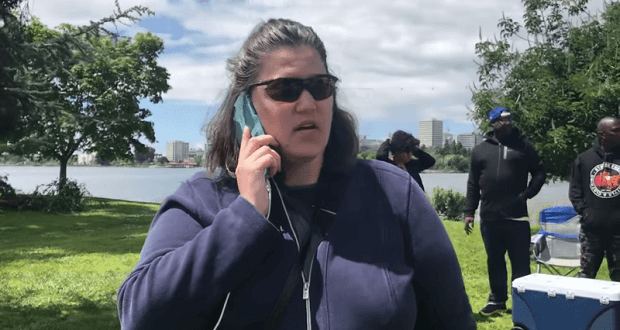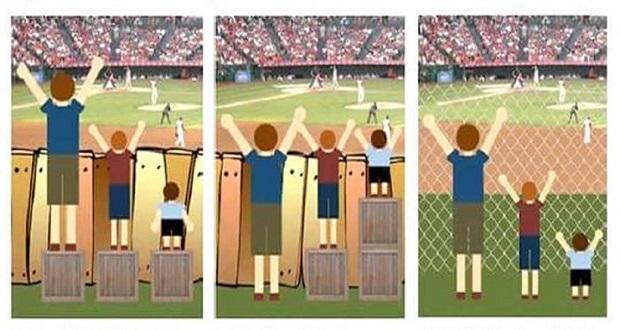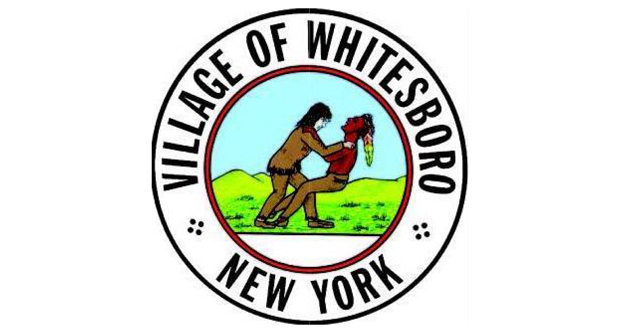
I first learned the connection between Donald Trump’s use of being the “law and order” candidate to Richard Nixon’s strategy decades ago while watching Ava DuVernay’s Netflix documentary, 13th. However, it’s been through watching the growing list of white people calling the police on their fellow black citizens that I’ve seen this law and order morality in everyday life.
“Permit Patty” called the cops on eight year old Jordan Rogers for selling water on the street; “Barbeque Becky” reported a black man grilling in a park; a white student called the cops on her fellow student, a black woman, for napping in a dorm common area; a white Starbucks barista called the cops on two black men for socializing; most recently, a North Carolina man called the cops on his black neighbor for being at the pool.
What strikes me about these incidences is not just their increased prevalence on social media but the deeper politics shaping the phenomenon. What kind of moral chords are struck in the perpetrators at the sight of these people of color doing seemingly innocuous things? It seems that the answer to that question even evades the perpetrators themselves as several have issued apologies declaring regret for their actions. #IDAdam (the North Carolina man) even admitted that he doesn’t know why he acted the way he did after watching himself on video.
One explanation is that law and order morality runs deep in the heart of whiteness as an ideology of control. In some ways, law and order morality makes since if you’re the ruling elite controlling an inequitable society. But it’s almost comical, if it wasn’t so deadly, in the hands of everyday citizens against their fellow Americans. It’s especially bizarre given that people on the receiving end of this policing were eating, drinking, swimming and socializing respectively—distinctive actions of being a full human being.
Law and order morality is the height of letter-of-the-law morality devoid of spirit. The thirst for a moral purity of order—and enforcing it on others—is not just morally bankrupt, considering the triviality of the boundaries it attempts to protect; it is entirely diminishing of and lacks human concern for the human beings it seeks to police.
The thirst for a moral purity of order—and enforcing it on others—is not just morally bankrupt, considering the triviality of the boundaries it attempts to protect; it is entirely diminishing of and lacks human concern for the… Click To TweetThis contrast was made explicit in this viral video, in which “Permit Betty” calls the police on a woman selling clothing on the street and a passerby confronts her about it. Although the audio cuts out, she explicitly says that calling the police to “make sure everyone has an opportunity” (for what, we never learn) is more important than everyone’s insistence on “compassion.” That is the great clash of law and order morality: compassion vs. compliance, relationships vs. rules, laws vs. love and order vs. the ordinary.
Law and order politics is not ultimately about equality or higher ideals; rather, it is about controlling people perceived to be less than and different. Law and order is never directed “upward” at the powers that be who govern systems of exclusion and indifference. It’s never directed at those who have turned socializing spaces into buying spaces (i.e. Starbucks), commodified natural resources (i.e. selling water), or segregated public community spaces (i.e. the historical segregation of swimming pools). Instead, it is always directed downwards, towards those whose lives are too often shaped by having to navigate systems that limit their full participation as citizens and be watchful of the self-proclaimed enforcers of this system.
Law and order politics is not ultimately about equality or higher ideals; rather, it is about controlling people perceived to be less than and different. Click To TweetWatching these incidents has been infuriating but also baffling, particularly in light of all the other possible reactions the cop-callers could have had: walking quietly so as not to wake up a sleeping student, buying a water to support the youth, holding the door for your neighbor enjoying the pool, not interrupting a coffee-shop conversation amongst friends, etc. I hope these incidences push us all to prize people over policies in our politics and get to the root of this thirst for law in order in the hearts of too many.
How do we begin prizing people over policies in our politics and get to the root of law and order politics? Click To Tweet


![A Point of View: Beyoncé, “Formation”, and Being Your [Unapologetic] Authentic Self](https://theinclusionsolution.me/wp-content/uploads/2016/02/beyonce-formation-car-braids.jpg)














